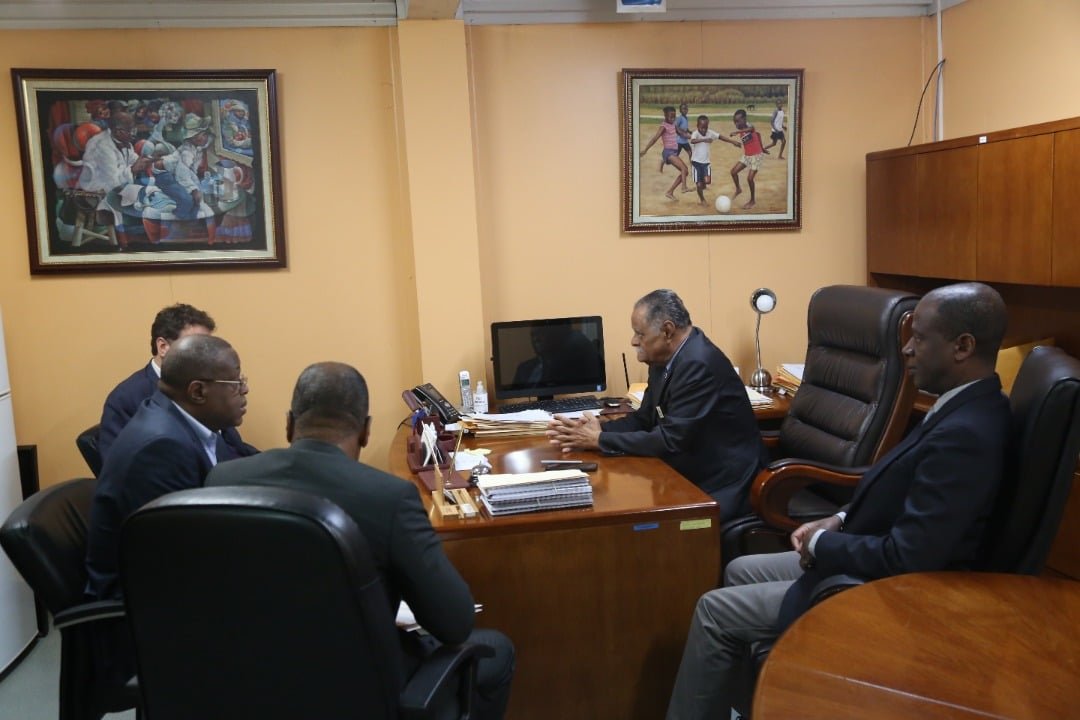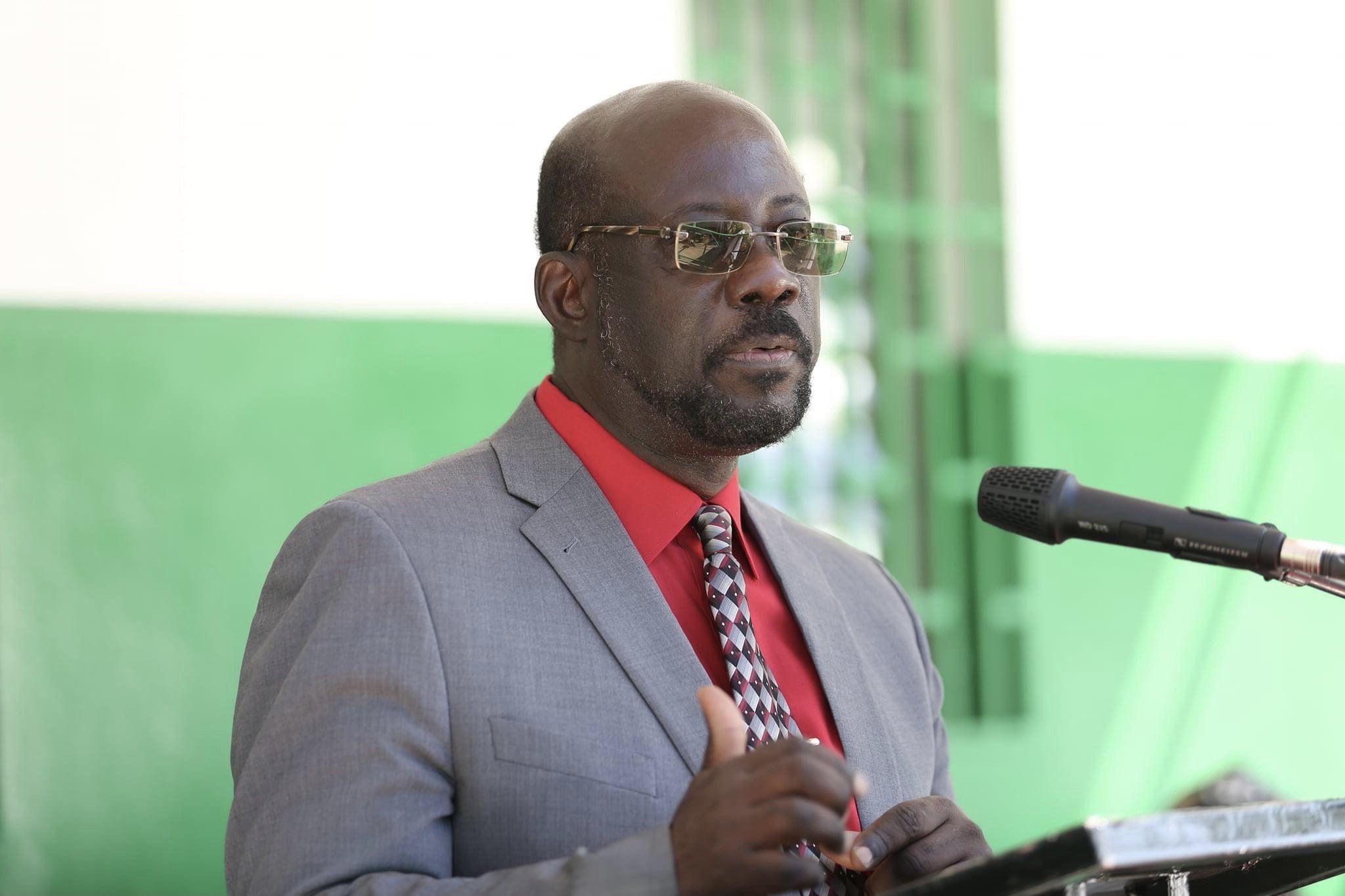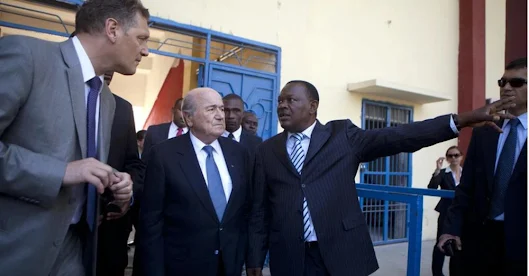 |
| On ne peut être plus démagogue qu’un fumeur de pipe vide! |
On ne peut être plus démagogue qu’un fumeur de pipe vide! Il faudra un jour faire une étude sur l’appareil idéologique qui a encadré le paiement de la dette de l’indépendance. Car, des intellectuels francophiles et surtout “faussaires” qui oeuvrent à détourner l’attention du peuple haitien en individualisant ou en privatisant les causes de nos malheurs, cela ne manque pas en Haïti. Ils sont incapables d'analyse sous l’angle des rapports de domination sociale qui transforment notre pays en un enfer où l’exclusion règne sous toutes les formes. En plus de la précarité et de la faim, de l’obsession de mener une vie de Prince sans base économique solide, le manque de caractère transforme nos intellos en laquais de l’oligarchie nationale et des tueurs internationaux d'Etat. J’ai été consterné par l’interview de Laënnec Hurbon sur France24 quand il a présenté le Président Jovenel Moïse comme responsable des gangs en Haïti. Car, depuis 2002, je lis religieusement les livres du Professeur Hurbon sur l’imaginaire collectif, la violence et le pouvoir en Haïti. Alors que dans les livres de recherches auxquels il a participé avec le Professeur André Corten l’approche individualiste sur les questions de pauvreté et de violence est fortement rejetée, déconseillée et même combattue, sur France 24 il a carrément fait du président Jovenel un bouc émissaire. Responsable d'un phénomène transnational qui traverse toute l'Amérique latine. Pourtant, dans le livre “La violence dans l’imaginaire latino-americain”, les chercheurs ont analysé la violence en Amérique latine, donc en Haiti, en constatant que celle-ci joue le role de “régulateur social” enraciné dans l’histoire des colonies esclavagistes. Cette violence existe dans toute les couches de la société, dans les rapports homme/femme, dans la famille : la violence que subissent les enfants, à l'école, dans les communautés, jusqu'au rapports entre classes sociales. Les chercheurs l’ont catégorisé en deux (2) groupes “ Violence des actions” et “violence des situations”, puis les ont décortiqué en utilisant les mots “violence direct ou physique”, “violence institutionnelle - légitime ou abus d’autorité”, “violence structurelle - violence économique, l’exclusion, les privations”, “violence culturelle”, “violence symbolique - les discriminations contre les paysans, indigènes, nègre morne”, la "violence délinquante" considérée comme absence d’ordre rapportée par les médias. Le professeur Hurbon a pris part à ses recherches. Il maîtrise ses concepts. Alors, pourquoi a t-il individualisé le problème faisant de Jovenel Moise le responsable de la violence des gangs en Haiti, contribuant ainsi à la campagne de diabolisation précédant son assassinat? La réponse : Quand l’intellectuel haitien veut faire plaisir aux maîtres du système, il devient méconnaissable. Qu’est-ce qu’on peut retenir du texte de Lyonel Trouillot -- ce démagogue épicurien qui fume une pipe vide? Honnêtement, je ne perds pas mon temps à lire Lyonel Trouillot - Car, le monsieur est un pédant retardé qui tire sa grandeur dans sa capacité à aider les médias français à détruire l’image d’Haiti. Comme récompense, de temps en temps, ont lui offre un prix; ce dispositif de prix fabriqués pour faire croire aux laquais nègres qu’ils ont atteint le niveau d’homme civilisé, qu’ils ne sont plus des indigènes. En somme, ils sont sortis du lot de leurs congénères, ils sont devenus des blancs à peau noire, bien sûr.—- mais, un ami a partagé avec moi son papier limité titré “Pauvre Jovenel” dans lequel il se contredit avec des concepts surannés, cherchant désespérément à manipuler la réalité jusqu’à nous faire croire que le désastre actuel est la faute aux duvalieristes. Donc, lui et ses amis jouisseurs n'y sont pour rien! Tout d’abord, dans son texte, Lyonel Trouillot reconnaît que la “Mort de Jovenel Moïse ne changeait rien.” Étrange révélation pour quelqu’un qui nous disait que Jovenel est responsable de tous les problèmes de ce pays. Si c’était vrai, son absence aurait arrangé les choses. Toujours dans sa stratégie manipulatrice de bouc émissaire, malgré le fait qu'il a effleuré les fondements du problème haitien en affirmant que “la continuité des rapports sociaux produisant trop d’inégalités et d’exclusion, ne pouvaient que produire et reproduire de la dégradation”, il s'est précipité d'indexer le PHTK. Ce point central des rapports sociaux n’a fait l’objet que d’un maigre paragraphe. Le plus important pour Lyonel Trouillot, c’est de parler du PHTK — qui certes a une grande responsabilité dans la situation actuelle du pays — mais qui est le produit des rapports de domination sociale. C’est aussi le cas pour INITE, Fanmi Lavalas et la classe politique en générale, constituée d’organisations politiques qui d’ailleurs pratiquent l’exclusion dans leurs structures internes et acceptent de jouer le rôle de metteurs en scène pour une oligarchie anti-nationale corrompue, dans le cadre d’une "démocratie de présentation". (Dans le livre Etat faible de André Corten. La démocratie sur l'île d'Haïti est devenue un système de présentation qui permet aux élites de présenter au public ce qu’elles ont arrangé en privé. Il n’y pas vraiment de participation populaire.) Toute la contradiction dans le texte de Lyonel Trouillot se trouve dans le fait de reconnaître que Jovenel Moïse menaçait des intérêts du système. Avant il nous disait qu’il était l’homme du système, son discours était démagogique et qu’en réalité il n'attaquera pas le système. Aujourd’hui, il reconnaît qu’il “serait exécuté par des comparses ou des proches ou encore d’anciens partenaires ne pouvant l’accompagner dans une folie qui menace leurs intérêts” Faut-il signaler qu’il a qualifié de FOLIE, la rébellion contre les oligarques corrompus. De plus, ce président qui s’est rebellé, est pour lui un “FANTOCHE”. Il est clair que l’écrivain défend la culture de soumission au système qui domine “l’imaginaire institué” enraciné dès la colonie esclavagiste quand Haïti était colonie française. Un fantoche qui se rebelle jusqu’à menacer les intérêts de ses partenaires, le raisonnement de Lyonel Trouillot est aussi vide que sa pipe. C’est le moins qu’on puisse dire. Pour éviter de parler de sa gauche-démagogique qui a détruit Haïti, Lyonel Trouillot nous présente une hypothétique extrême-droite. En 2016, dans un élan opportuniste, il nous avait dit que Moise Jean-Charles était le candidat de la gauche haïtienne. Donc, aujourd’hui, il semble trouver embarrassant de parler de cette gauche dont Moïse Jean-Charles est le leader, il s’est inventé une extrême-droite. Défaut professionnel d’un écrivain qui sait manier la fiction ou manœuvre déloyale, en tout cas, cela ne cadre pas avec la réalité en Haïti. Tout le monde voit les manœuvres de l'extrême-droite à travers le monde. En Haïti, c’est différent. Car, toutes les personnalités qu’on pourrait accusé d’extreme droite participent à toutes les combines de la gauche-démagogique : Assassinat du président Jovenel, Accord de Montana, Gouvernement de Ariel Henry... Sublime déraison! Selon Lyonel Trouillot, sa gauche-démagogique et épicurienne qui monopolise le pouvoir depuis plus de 30 ans n’a rien à voir avec l’effondrement de l’Etat haitien ni la dé-liaison sociale. C’est la faute aux duvalieristes dont bon nombre sont membres de leur gouvernement. Par exemple, l’un des plus connus des duvalieristes Rony Gilot était l'ami personnel et conseiller de Jocelerme Privert, le président de facto idéalisé par le clan de Lyonel Trouillot. Pathétique! En Haïti les démocrates aiment la transition. Tous les présidents élus ont été combattus par eux. Leur champion c’est Jocelerme Privert et les autres qui distribuent des chèques pour financer des séjours de militants de luxe à Paris. À bien suivre le raisonnement de Lyonel Trouillot, ce sont les duvalieristes qui avaient réclamé un embargo total sur Haïti. Est-ce les duvalieristes qui ont signé l’accord de Paris en 1994, libéralisant l’économie nationale, détruisant l’agriculture, l’industrie nationale, provoquant l’acculturation des jeunes? Est-ce les duvalieristes qui avaient créé l'Armée rouge et les gangs dans les quartiers populaires et/ou populeux? Lyonel Trouillot veut nous faire croire que ce sont les duvalieristes qui avaient liquidé les entreprises publiques sous prétexte de privatisation. L’invasion militaire, la destruction de l’Armée d'Haïti et l’écroulement de toutes les structures de sécurité intérieure et rurale, il est difficile de les mettre sous le compte des duvalieristes. Franchement, ce Lyonel Trouillot est un “Intellectuel faussaire” sans pudeur. Comment peut-on brandir encore les duvalieristes comme une menace pour la démocratie, 30 ans après avoir régné en roi en Haïti, soit après trois décennies d’échecs cumulés? Qu’il aille dire au service secret français et à leurs protégés oligarques : “Cette mission est impossible!” Cette manipulation ne passera pas! La cause du problème en Haïti est le système d’exclusion socio-économique mis en place par les néo-colonialistes à partir de 1822 suite à la mort du Roi Christophe. La France a toujours supporté ce système et même quand en 1986 elle parlait de démocratie en Haïti, c’était sans toucher l’infrastructure économique. Or, il n’y a pas de démocratie sans participation sociale et économique. Une économie de plein emploi et d’accès au crédit constitue l’ultime condition pour la réussite de la démocratie. Démocratie = Participation politique, économique, sociale, culturelle. La démocratie ne peut pas réussir dans un système d’exclusion extrême aussi archaïque comme Haiti avec cette culture de violence, de mépris social, de raciste systémique et d’apartheid économique. A chaque système politique correspond un système économique. Le système économique que nous avons en Haïti n’est pas favorable à la démocratie, mais à la féodalité. Ce n’est pas un hasard si les maîtres du système utilisent aujourd’hui la violence comme régulateur et moyen de contrôle : des mercenaires pour assassiner un Chef d’Etat qui refuse d’obéir, des gangs pour terroriser la population et exclure la souveraineté populaire, réduisant les élections démocratiques à un vote de 52 personnes dans une chambre hotel privé appelé Montana. L’économie néo-féodale monopoliste d’exclusion cherche son corollaire politique : Un pouvoir de nobles et de seigneurs obéissants aveuglément à l’oligarchie corrompue. (Ariel Henry et tous les zombies de ce gouvernement sont incapables d’aborder la vie chère). (Lisez Alvin Toffler : Les nouveaux pouvoirs) C’est démagogique de parler de démocratie en Haïti sans combattre le système économique monopoliste et féodal. On ne peut pas chercher la bonne grâce des oligarques corrompus, gardiens des intérêts néo-coloniaux français en Haïti et parler de la démocratie. C’est démagogique, manipulateur et faussaire! En passant, je conseille à Lyonel Trouillot de consulter le livre “Tyrannie du mérite” de Albin Michel. Cela lui permettra de comprendre le niveau dépassé de ses approches Gauche/Droite. Car, aujourd’hui la Gauche et la Droite se ressemblent et sont au service du marché, de la finance et contre les peuples. Elles acceptent tous les deux la financiarisation de la politique, la marchandisation de la démocratie et de la globalisation. Les élus sont remplacés par des technocrates insensibles, le discours politique n’a plus de sens moral ni historique; les dirigeants politiques sont devenus des affairistes, l’aspiration des masses est remplacée par des statistiques; la justice sociale par le mérite, la sagesse et l'expérience par la diplomanie; la dignité et l’honneur par le pouvoir d’achat. Aujourd’hui, il s’agit d’OUVERTURE et de FERMETURE. Ceux comme vous, qui sont pour l’ouverture débridée, défendent les idées libérales-libertaires et de marchandisation de tout… de l’amour, du patriotisme, de la culture…des organes. Pour eux Haïti n’a pas besoin d’une Armée, il suffit d’être ouvert, d’être prêt à accueillir des troupes étrangères. Mais, c’est cette ouverture qui aujourd’hui a créé cette dé-liaison, l’ingérence internationale excessive qui a détruit les systèmes traditionnels de contrôle social qui empêchait jadis, le banditisme généralisé et les zones de non-droit en Haïti. Les partisans de la fermeture veulent bien corriger les dégâts que vous avez causés. Ils veulent bien échanger avec le monde, mais en concervant l’identité nationale, la dignité d’être un haitien et l’héritage culturel qui ont fait de nous la Première République nègre indépendante, la seule révolution d’esclaves jamais réussie de toute l’histoire de l’humanité. Depuis 1994, les intellectuels et hommes politiques épicuriens comme Lyonel Trouillot ont abandonné les revendications des masses populaires en vue de se faire une santé économique et financière. Ils sont partout à la recherche de leur satisfaction personnelle. Ils ont trahi le peuple haitien et aujourd’hui n’ont aucune légitimité pour nous dire ce que nous devons faire. Ils ont eu leur temps, ils ont échoué piteusement, traînant le pays avec eux. Le temps est à la « reconquête nationale ». La ligne d’action du président Jovenel Moïse est inscrite dans cette vision consistant au renforcement de l’État et ses institutions : EDH, MTPTC, Ministère de l’Agriculture; cet ancien Etat fort qui assurait le nettoyage des villes, la réparation des routes et des canaux d’irrigation, l’ordre public et la sécurité nationale. Son assassinat constitut la confrontation de deux visions, deux approches : Celle d’un Etat faible prôné par la gauche néo-libérale à partir des années 90 et la vision traditionnelle et historique d’un Etat fort équipé et armé assez pour fournir des services et protéger son peuple. On l’a vu lors du tremblement de terre de 2019 dans le Nord-Ouest, le Président Jovenel ne fit appel à aucune force internationale. Les Forces Armées d’Haiti et les Travaux publics d'Haïti étaient sur le terrain pour porter assistance à la population. C’est cette vision d’un État fort qui a fait le succès d'Haïti dans le passé. Mais, elle a été interrompue par des démagogues au service de l’impérialisme néo-libéral qui nous ont fait croire qu’on pouvait tout détruire avec l’espoir que l’international et ses ONGs allaient reconstruire. La “RECONQUÊTE” continuera puisqu'on ne change pas un pays avec une équipe d’irresponsables nihilistes, épicuriens dont l’histoire ne retiendra que le résultat chaotique de son leadership. Comme fumer une pipe vide, cette équipe de petits jouisseurs arrogants prend ses illusions pour la réalité. Résultat, le chaos. C’est toute une nation, qui est menacée d’extermination.
Cyrus Sibert, Cap-Haitien, Haiti
5 Juillet 2022
#LeReCit @ReseauCitadelle
WhatsApp : +509-3686-9669
reseaucitadelle@yahoo.fr
https://reseaucitadelle.blogspot.com
Lisez :
1- Ce qu’il faut retenir de l’Interview ratée de Lyonel Trouillot sur @FranceCulture.-
2- De quel Moise Jean-Charles Antoine Lyonel Trouillot nous parle t-il?










